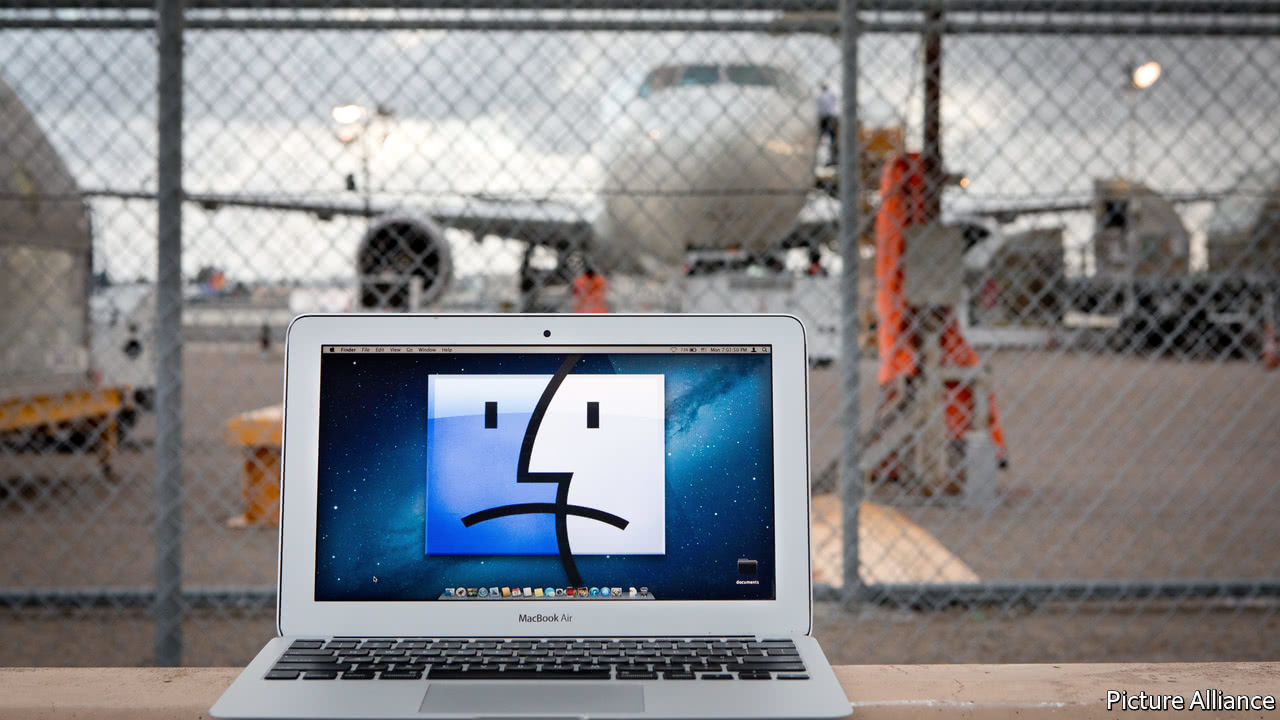
JUST like that, America’s laptop ban is all but over. Four months ago the Trump administration announced that travellers from ten Middle Eastern countries would be barred from taking electronics larger than a mobile phone into plane cabins, citing security concerns. In the past few weeks, the government has been gradually freeing carriers, including Emirates, Etihad and Turkish Airlines, from the restrictions. On July 17th, it lifted the ban on the last remaining airline covered, Saudi Arabian Airlines.
That represents a shift by the Department of Homeland Security. John Kelly, the department’s chief, had at one stage suggested that the laptop would be extended across the world. But at the end of last month it was instead decided that America would demand a slate of tighter security measures at all airports with flights into the country. Mr Kelly said at the time that around 325,000 flyers each day, on 2,000 flights from 280 airports in 105 countries, would be subject to a more “extensive screening process”. That would include more rigorous screening of—but not a prohibition on—large electronic devices, as well as more explosive-sniffing dogs and tighter vetting of potentially dangerous travellers.
-
Podcast: Goodbye, Benito
-
Revisiting “Jewels”, 50 years on
-
Britain: back to being the sick man of Europe?
-
Hawaii and the White House exchange angry briefs on the travel ban
-
De-escalation in Syria
-
How data changed gambling
America’s airlines were not thrilled at the announcement. They worried that the new measures would lead to longer security lines (and, presumably, that they might lose a competitive advantage over Middle Eastern rivals). And no business traveller likes longer lines. But on the whole the development will be welcomed by road warriors who must no longer confront the prospect of going laptop-less for long-haul flights across.
Technically, the laptop ban is not quite over. The Transportation Security Agency has not yet lifted it for the airport in Riyadh, only for Saudi Arabian Airlines’ main hub in Jeddah. But a TSA spokesman told Reuters that American officials would be visiting Riyadh airport later this week to confirm compliance with the new security requirements. The DHS also issued a new directive to airlines week, clarifying some of the measures that they must enact. If they fail to do so, the department could reimpose restrictions.
But for now, travellers can breath a sigh of relief—at least all those not flying into Britain, which has its own electronics ban covering routes from six Middle Eastern and North African countries. It is showing no signs of following America’s lead. “It is for the US to determine its own security measures based on its own assessments, just as we do ourselves,” says a spokesperson at the Department for Transport. A good book is still essential for some flights into Heathrow, then.
Source: economist
Restrictions are lifted on the last airline affected by America's laptop ban